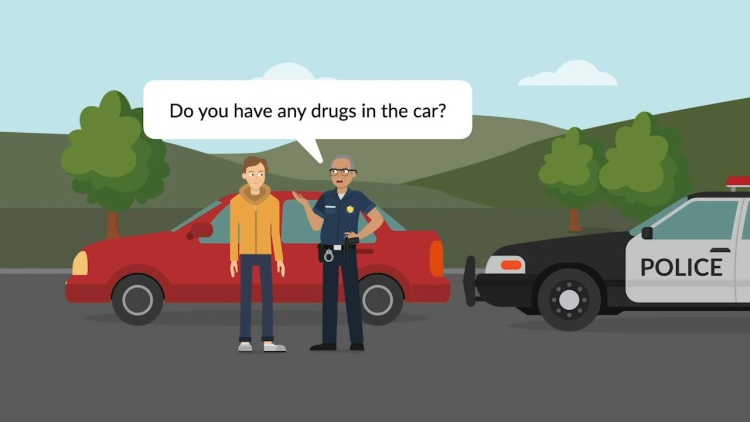Ohio v. Robinette
United States Supreme Court
519 U.S. 33 (1996)

- Written by Sean Carroll, JD
Facts
A police officer pulled over Robinette (defendant) for speeding. The officer ran Robinette’s license plates and they came back clean. The officer then issued a verbal warning for speeding, returned Robinette’s driver’s license, and immediately asked if Robinette had any drugs in the car. Robinette said that he did not, and consented to a search. The officer found drugs. At trial, Robinette asserted that the search violated his Fourth Amendment rights because he was unaware that he was free to go after the officer returned his driver’s license. The Supreme Court of Ohio ruled in his favor and held that an express indication from the officer that Robinette was free to go was necessary. The United States Supreme Court granted certiorari.
Rule of Law
Issue
Holding and Reasoning (Rehnquist, C.J.)
Dissent (Stevens, J.)
What to do next…
Here's why 907,000 law students have relied on our case briefs:
- Written by law professors and practitioners, not other law students. 47,100 briefs, keyed to 996 casebooks. Top-notch customer support.
- The right amount of information, includes the facts, issues, rule of law, holding and reasoning, and any concurrences and dissents.
- Access in your classes, works on your mobile and tablet. Massive library of related video lessons and high quality multiple-choice questions.
- Easy to use, uniform format for every case brief. Written in plain English, not in legalese. Our briefs summarize and simplify; they don’t just repeat the court’s language.





